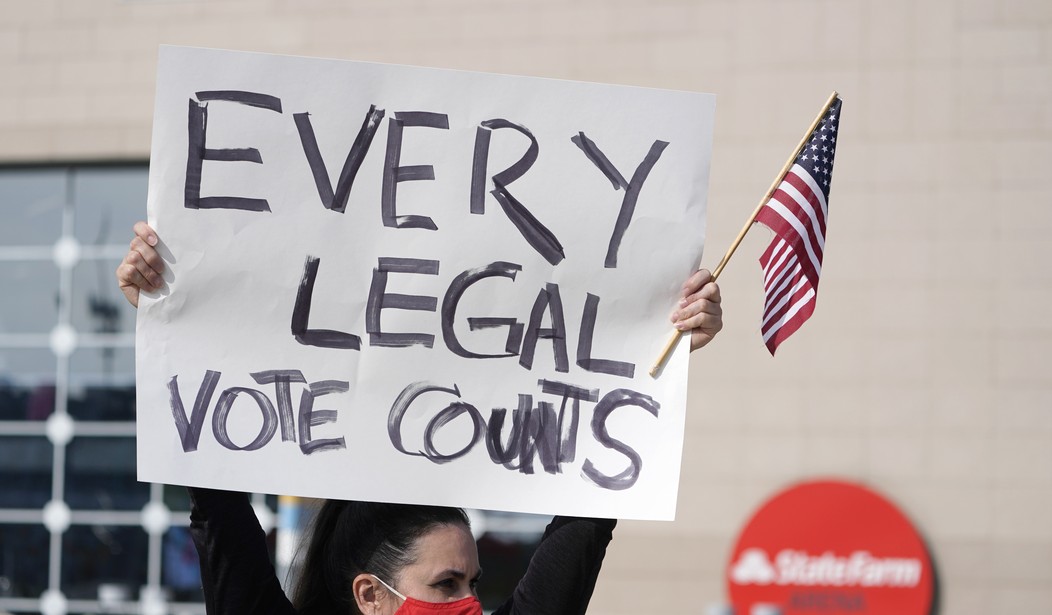On Friday, a Georgia State Court Judge ruled that approximately 145,000 absentee ballots cast and counted in Fulton County, Georgia, must be copied and turned over for inspection to Plaintiffs in lawsuits brought in the aftermath of the outcome of the November 2020 presidential election contest in Georgia.
Friday’s decision came in a lawsuit filed by nine plaintiffs, including Garland Favorito, a Fulton resident and self-styled election watchdog. It’s one of more than 30 Georgia lawsuits stemming from the November presidential election and the January runoff for the U.S. Senate. Some of the lawsuits are still winding their way through the courts.
Back on December 5 of last year, I wrote about a lawsuit filed by the Trump campaign in Georgia state court challenging the outcome of the Presidential election contest in Georgia (see Trump Campaign Files Georgia Election Contest in Fulton County Court).
This lawsuit was separate from the ones filed in federal court by Lin Wood and Sydney Powell. The Campaign’s lawsuit being focused on allegations that tens of thousands of invalid votes had been unlawfully counted in favor of Joe Biden. Under Georgia election laws, the procedure should have been for this lawsuit to be assigned to a Fulton County Judge, and then transferred to a judge in another county by the Presiding Judge who determined that it fit certain criteria — which it certainly did. After assigning to a judge, there would be a limited period of discovery during which the Campaign would have been given access to election records, a bench trial held, and a decision made on the allegations of the complaint.
None of that happened. I covered the reasons why in a second article that looked at the impossibility of conducting a review of a presidential election under Georgia law because of the limited time available between certification of the outcome by the Secretary of State — no election contest can be filed pursuant to the statute prior to certification happening — and the meeting of the Electoral College where the Georgia Electors certified by the Secretary of State cast their votes (see Election Integrity Challenges Not Possible Under Georgia Election Statutes).
Further, the remedy under Georgia law when an election outcome is declared invalid by a Georgia Court is a re-run of the election. Unlike some other states — such as Nevada, for instance — a Judge assigned to an election contest lawsuit cannot declare a winner, he/she can only determine if the certified outcome was valid or invalid. If invalid, the statute requires a re-do of the election. That was never going to happen in Georgia, regardless of the outcome of the challenges mounted in court.
What actually happened in the lawsuit filed by the Trump campaign was exactly as predicted in my two articles — no judge was assigned in a timely manner, the Campaign was never given access to the evidence in the hands of the state election officials, and the Electoral College met and cast its votes while the lawsuit was pending. There could have been 2 million, illegally-cast ballots in Georgia, but if the state courts and election officials simply stalled the process for an election contest lawsuit to proceed, nothing was going to happen.
Judge Amero has ordered that high-resolution copies be made of the 145,000 absentee ballots, while the originals will remain in the custody of election officials. But the copies should allow the plaintiffs to look for certain kinds of possible irregularities such as whether any ballots were machine marked and then copied in large numbers. Mailed-in absentee ballots should all be hand-marked by the voter.
None of these election lawsuits can alter the outcome of the 2020 election. The justification for proceeding is to determine whether there was any fraudulent activity in the vote or vote-counting process of Fulton County — a goal endorsed by none other than Georgia Secretary of State Brad Raffensperger.
In a statement, Raffensperger cited “a longstanding history of election mismanagement” in Fulton County.
“From day one I have encouraged Georgians with legitimate concerns about the election in their counties to pursue those claims through legal avenues,” Raffensperger said. “Fulton County has a longstanding history of election mismanagement that has understandably weakened voters’ faith in its system. Allowing this audit provides another layer of transparency and citizen engagement.”
Raffensperger adopted this conciliatory tone, only after his office opposed the effort by the Plaintiffs to gain access to the mail-in ballots counted in Fulton County.
It is worth noting that the infamous telephone call between President Trump and Raffensperger was part of a “confidential settlement discussion” over the state court lawsuit brought by the Campaign that I referenced above. Raffensperger now applauds the effort to examine the vote-counting in Fulton County, based on a “longstanding history of election mismanagement”, but had no interest in doing so during the call with President Trump, wherein he denied there was any reason for such an examination or investigation.
The media and Democrats claimed that in this call, Pres. Trump was urging Raffensperger to “find” more Trump votes to overcome the 11,000 vote deficit that decided the election.
That was false.
What Pres. Trump was urging Raffensperger to do was to “find” 11,000 invalid votes that had been included in Biden’s vote total in the state — his margin of victory. The lawsuit alleged such invalid votes were cast and counted, and that an investigation by Raffensperger — part of the mandate of his office — would reveal that to be true. Pres. Trump was calling on Raffensperger to conduct that investigation. I made that clear in a story that compared the comments of both participants in the recording released to the media in the context of the subjects being discussed when the comments were made (see The President’s Call With the Georgia Secretary of State — A Case Study in Media Duplicity).
Raffensperger said there was no basis to do such an examination, and that such invalid votes didn’t exist.
I guess he only learned of the “longstanding history of election mismanagement” in Fulton County after his call with President Trump.
Or maybe it’s because, as the Atlanta Journal-Constitution story notes, Raffensperger is facing a tough primary contest in 2022 to remain in his office.















Join the conversation as a VIP Member